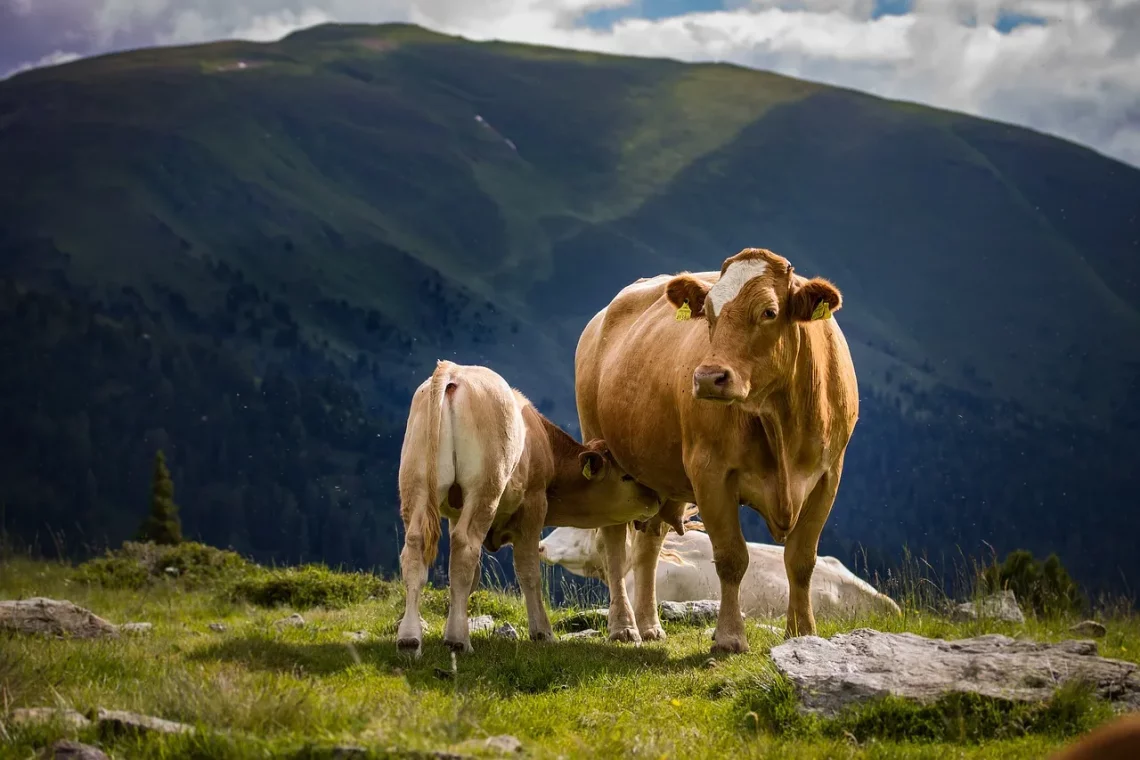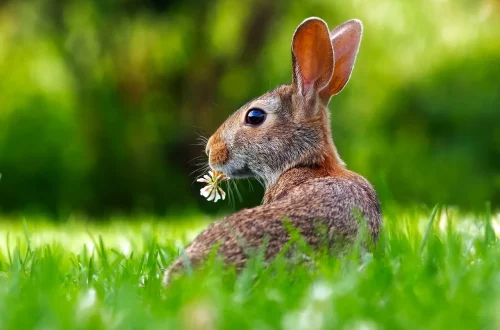
Exploring the Fascinating Breeds of Miniature Cows
Miniature cows have been gaining popularity in recent years, captivating the hearts of animal lovers and farmers alike. These charming creatures, often described as the perfect blend of cuteness and practicality, are not just a trend but a fascinating part of the agricultural landscape. Their manageable size, friendly demeanor, and unique characteristics make them an attractive option for small farms, homesteads, and even as companions in urban settings.
As the interest in sustainable living and local farming continues to rise, miniature cows present an exciting opportunity for individuals looking to engage in agriculture while enjoying the companionship of livestock. Unlike their larger counterparts, these diminutive bovines require less space and food, making them ideal for those with limited resources. Additionally, miniature cows can produce milk and meat, providing a sustainable source of food for families.
The growing awareness of animal welfare and the desire for ethical farming practices have also contributed to the increasing allure of miniature cows. These gentle giants offer a chance to connect with nature and experience the joys of raising animals without the overwhelming commitment that larger breeds demand. In this article, we will delve into the captivating world of miniature cows, exploring their various breeds, characteristics, and the benefits they bring to our lives.
Understanding the Miniature Cow Phenomenon
Miniature cows, as the name suggests, are smaller versions of standard cattle breeds. They typically stand at about 36 inches tall at the shoulder and weigh significantly less than their larger counterparts. The most common miniature breeds include the Miniature Hereford, Miniature Jersey, and Zebu, each with its own unique traits and appeal.
One of the most appealing aspects of miniature cows is their friendly and docile nature. They are known for their gentle temperament, making them suitable for families and individuals who may not have prior experience in raising livestock. Their manageable size allows for easier handling, and many people find joy in their playful antics and curious personalities.
The rise in popularity of miniature cows can be attributed to several factors, including the shift towards sustainable and local farming practices. As more people seek to become self-sufficient, miniature cows provide a practical solution for producing milk and meat. They are also less resource-intensive, requiring smaller amounts of feed and space compared to traditional cattle.
In addition to their practical benefits, miniature cows have also become popular as pets. Many owners appreciate the bond that can be formed with these animals, and the companionship they provide can be immensely rewarding. Miniature cows can be trained to follow commands, making them enjoyable to work with and interact with daily.
Furthermore, the aesthetic appeal of miniature cows cannot be overlooked. Their adorable size and often unique coat patterns make them a delightful addition to any farm or homestead. Many people enjoy showcasing their miniature cows at agricultural shows and fairs, adding to their charm and popularity.
The Unique Breeds of Miniature Cows
Several breeds of miniature cows exist, each bringing its own distinct characteristics and advantages. The Miniature Hereford is one of the most recognized breeds, known for its friendly disposition and excellent meat quality. Miniature Herefords are typically red with white faces, and their small size does not compromise their ability to produce high-quality beef. They are known for their hardiness and adaptability, making them ideal for various climates and farming conditions.
Another popular breed is the Miniature Jersey, celebrated for its rich, creamy milk. Miniature Jerseys are smaller versions of the standard Jersey breed, and they are beloved for their gentle nature and high butterfat content in their milk. This makes them a favorite among small-scale dairy farmers who appreciate the quality of milk they can produce without requiring a large herd. Their striking color variations, ranging from light brown to dark fawn, also add to their aesthetic appeal.
Zebu cattle, originating from tropical regions, are another breed that has gained attention in the miniature category. These cows are characterized by their distinctive hump and large ears, making them easily recognizable. Zebu are known for their heat tolerance and disease resistance, making them an excellent choice for warmer climates. Their friendly and social nature makes them great companions, and they are increasingly popular among hobby farmers.
In addition to these breeds, there are also hybrid options available, which combine traits from different miniature breeds to create unique animals. These hybrids can offer a blend of desirable characteristics, such as enhanced milk production or improved temperament.
Each breed of miniature cow brings its own set of advantages and challenges, so potential owners should consider their specific needs and farming goals when choosing a breed. Whether for milk, meat, or companionship, there is a miniature cow breed that can fit seamlessly into almost any lifestyle.
The Benefits of Raising Miniature Cows
Raising miniature cows comes with a myriad of benefits, making them an attractive option for both novice and experienced farmers. One of the primary advantages is their size. Miniature cows require significantly less space than standard breeds, which is particularly beneficial for those with limited land. This compact size allows for easier management and care, making them ideal for suburban or urban settings.
In addition to space considerations, miniature cows are also more economical to feed and maintain. Their smaller stature means they consume less feed, resulting in lower overall costs for owners. This makes them a practical choice for individuals or families looking to incorporate livestock into their lives without breaking the bank.
Another significant benefit is the ability of miniature cows to produce milk and meat. Many breeds are known for their high-quality milk, providing an excellent source of nutrition for families. The milk from miniature breeds, such as the Miniature Jersey, is often richer and creamier than that from larger breeds, making it ideal for cheese and butter production.
Moreover, miniature cows are known for their gentle and friendly nature, making them great companions. Their sociable temperament allows them to bond well with humans and other animals, creating a harmonious environment on small farms or homesteads. Many owners report that the presence of miniature cows enhances their quality of life, providing joy and companionship.
Additionally, raising miniature cows can contribute to sustainable farming practices. They are often easier to manage than larger cattle, reducing the carbon footprint associated with livestock farming. Their ability to graze on smaller pastures helps maintain the land and promotes biodiversity, making them an environmentally friendly choice.
Finally, miniature cows can also be a source of income for small-scale farmers. With the growing demand for local and sustainable food sources, many owners find that they can sell milk, meat, or even breeding stock to eager buyers. This can provide a viable source of income while also contributing to the local economy.
In summary, the benefits of raising miniature cows are numerous, making them an appealing option for those interested in livestock farming, sustainable living, or simply wanting to enjoy the company of these delightful animals.
Caring for Miniature Cows: Essential Considerations
Caring for miniature cows requires a commitment to their health and well-being. While they may be smaller in size, their needs are similar to those of larger cattle. Providing proper nutrition, housing, and veterinary care is crucial for ensuring that these animals thrive.
Nutrition is a fundamental aspect of caring for miniature cows. Owners should provide a balanced diet that includes high-quality hay, pasture grazing, and appropriate supplements. It is essential to monitor their body condition and adjust their feed accordingly to prevent obesity or malnutrition. Regular access to fresh water is also vital for their health.
Housing is another critical consideration. Miniature cows require shelter from extreme weather conditions, whether it be intense heat or cold. A simple barn or shed can provide them with the protection they need. Additionally, secure fencing is necessary to keep them safe from predators and prevent them from wandering off.
Routine veterinary care is essential for maintaining the health of miniature cows. Regular check-ups, vaccinations, and deworming are necessary to prevent illness and ensure that they remain healthy. Owners should also be vigilant in observing their cows for any signs of distress or illness, as early intervention can prevent more serious health issues.
Socialization is an often-overlooked aspect of cow care. Miniature cows are social animals and thrive in the company of their herd. If possible, it is advisable to keep more than one cow to fulfill their social needs. Introducing them to other friendly animals can also enhance their well-being.
Lastly, owners should invest time in training and handling their miniature cows. Positive reinforcement methods can help establish a trusting relationship and make daily care easier. Training them to follow basic commands can enhance safety and improve the overall experience of raising these animals.
In conclusion, caring for miniature cows requires dedication and attention, but the rewards of companionship and sustainable living make it a fulfilling endeavor. By prioritizing their needs and well-being, owners can enjoy the many benefits of raising these charming creatures.
—
This article provides an overview of the fascinating world of miniature cows, highlighting their breeds, benefits, and care requirements. As with any animal ownership, potential owners should do thorough research and consider their capabilities and resources before embarking on this rewarding journey.




